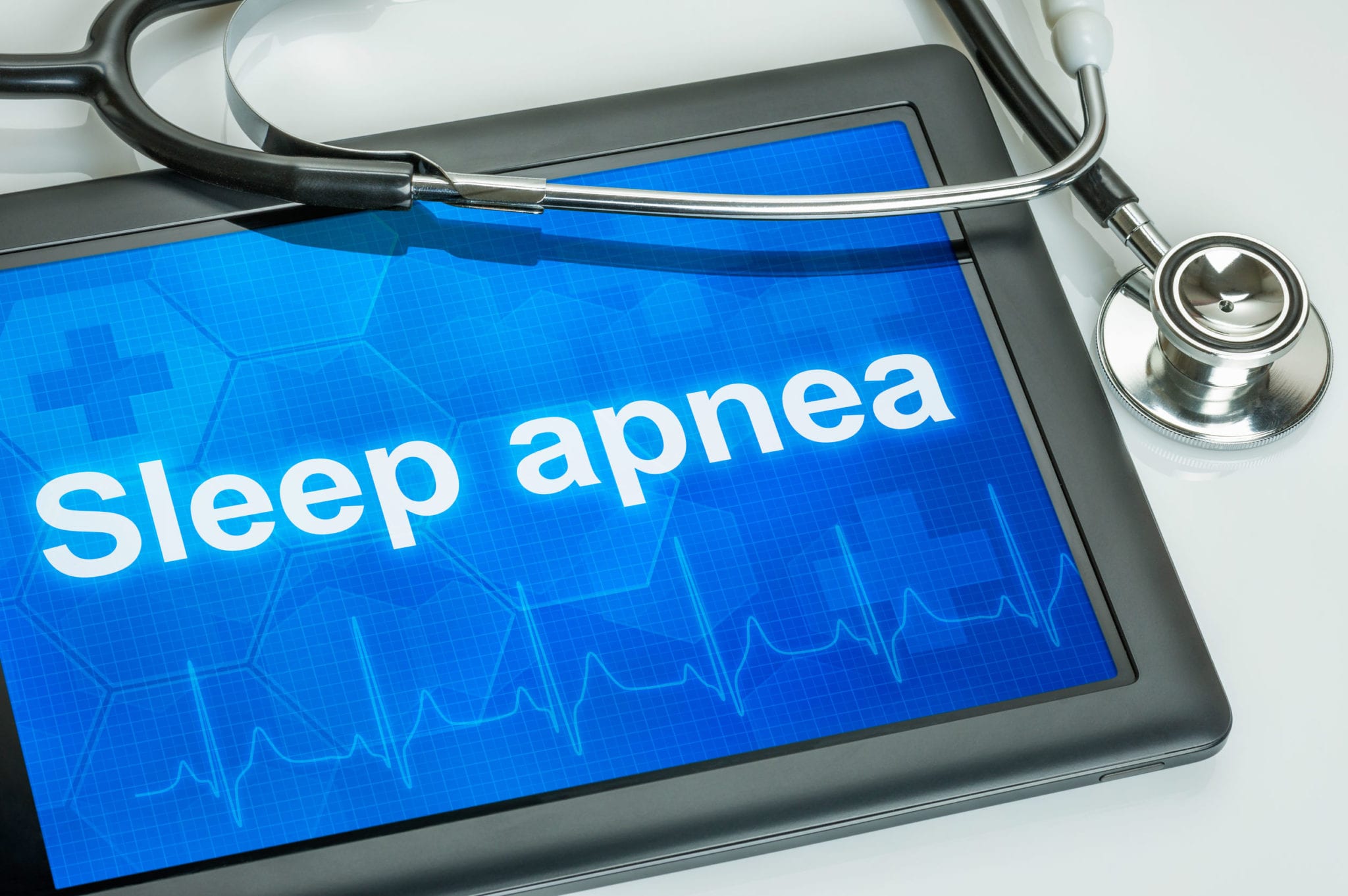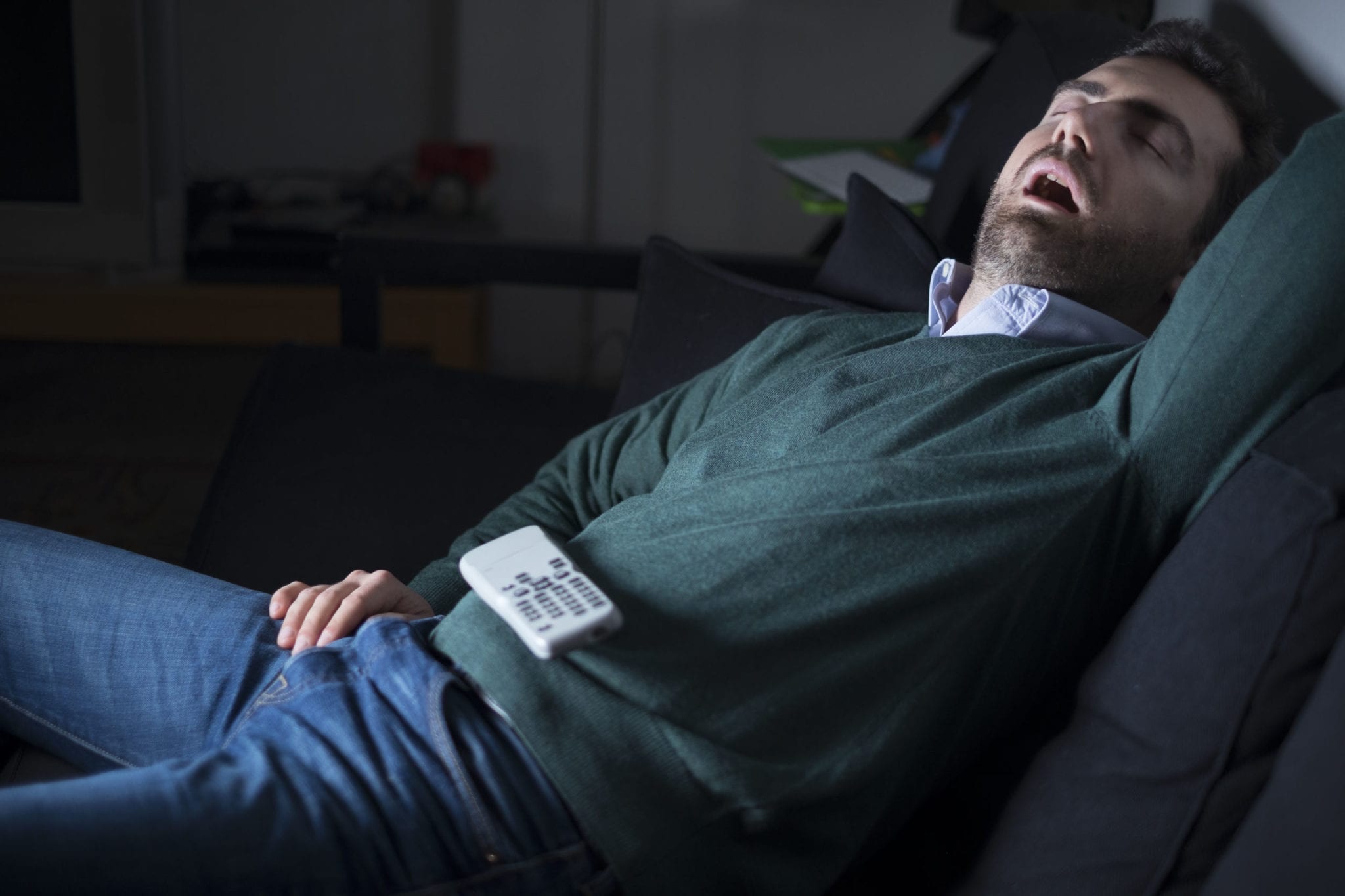
Do you know how sleep apnea is connected to dental health?
In this post, we’re going to explain the connection, as well as how a dentist can help.
What Is Sleep Apnea?
When your breathing is interrupted while you sleep, you experience sleep apnea. People who snore often have sleep apnea, but snoring is not always associated with the condition.
Most people with sleep apnea have the obstructive type. This is due to your air passages becoming blocked during sleep, usually when tissues collapse at the back of your throat.
Central sleep apnea results when the brain fails to send the right signals to your breathing muscles. If you have had a stroke, brain infection or tumor, or heart failure, you may also experience central sleep apnea.
Certain factors make it more likely that you will experience sleep apnea, including the following:
- Men
- Age over 40
- Overweight or obese
- Anatomy issues, such as a large tongue or swollen tonsils
- Family history of the condition
- Nasal obstruction caused by sinus issues, allergies, or a deviated septum
If you don’t get help for sleep apnea, you have an elevated risk of the following health problems:
- Diabetes
- High blood pressure
- Stroke
- Irregular heart beat
- Heart failure or heart attack
- Fatigue
- Depression
- Increased symptoms of ADHD
It’s important to seek treatment for sleep apnea, and not just so you can get better rest – you need help to avoid these life-changing conditions.
How Is Sleep Apnea Treated?
There are several treatment options for sleep apnea, including the following:
Change your sleeping position
Sleeping on your back can make the problem worse. If you have obstructive sleep apnea, switching to a side position can reduce the chance that the soft tissues in your throat will obstruct your airway.
Use a breathing device
Many sleep apnea sufferers find relief by using a continuous positive air pressure (CPAP) device. The CPAP machine covers your mouth and nose with a mask. The device gently pushes air through your nose to ensure that your airways are open while you are asleep.
Use an oral appliance
Some people may benefit from the use of a custom oral device. A properly fitted device supports the jaw and shifts it to keep your airway open. Your dentist can fit you for an oral device that will help most if you have a mild to moderate case of sleep apnea.
Surgery as a last resort
If the treatments described above are not effective in relieving sleep apnea, your doctor may recommend surgery. Some people get relief when their tonsils or certain parts of their soft palate are removed. Your doctor might first recommend a sleep study to study the extent of your problem.
How Can a Dentist Help with Sleep Apnea?
Besides providing you with an oral appliance, your dentist can be a big help in spotting sleep apnea in patients who don’t know they have it.
How?
They will check your teeth for signs of tooth grinding. You may subconsciously grind your teeth as a signal to your brain that you need to breathe. Other signs include a large tongue, small jaw, inflamed throat, or jaw pain.

Additionally, if you have tooth decay, it could be caused by keeping your mouth open at night due to sleep apnea. Dry mouth can lead to gum or tooth loss.
Schedule an appointment today with your dentist if you suspect you have sleep apnea.






